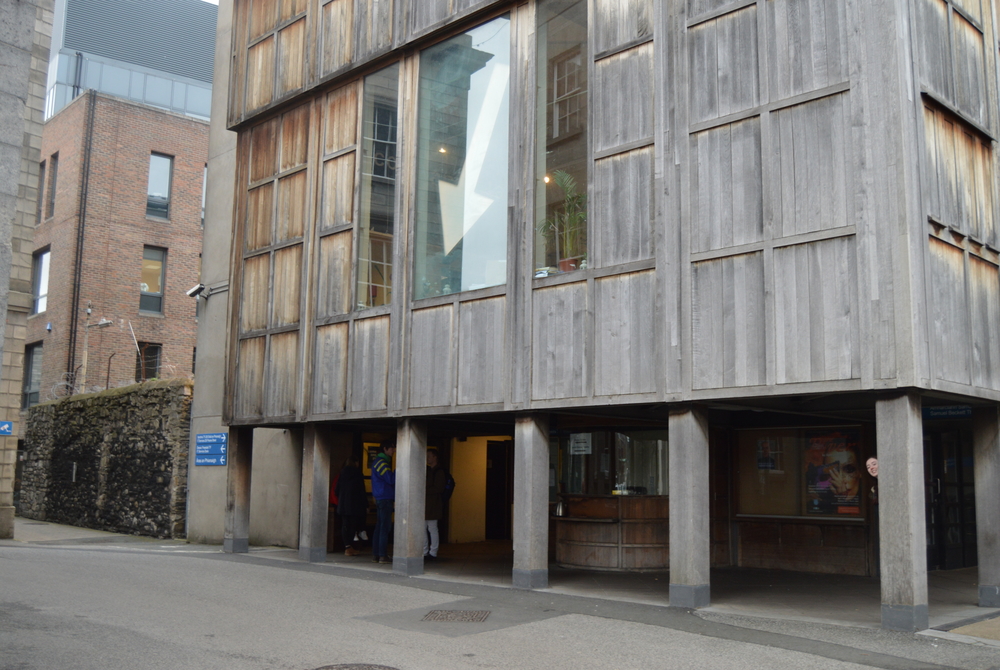Self-described as an “exciting and vibrant showcase of all new bright and bold ideas,” this year’s Trinity Fringe festival certainly did not disappoint. A three day programme included workshops for aspiring creative minds on “how to submit to Dublin Fringe,” and a “history of alcohol,”to name but a few. Also on the agenda were a variety of theatrical performances, with imaginative titles such as “Charlie’s Angels,” and “Laugh.exe,” each undoubtedly more entertaining than the last. The festival concluded with a drinks reception on Saturday, in order to adequately pay homage to what is truly one of the most unique events available to students on campus, which, given the wide array of societies and daily happenings on campus, is an impressive feat.
Although each Fringe event undoubtedly captured the imaginations of those present, the highlight for many was Thursday’s Improv She Wrote. The showing was as wonderfully bizarre as you would expect, with those on stage forced to adapt to challenging games and eager audience participation. It is not often that you get to go to the theatre and shape what happens on it, and that is ultimately what made this particular installation so engaging.
“However, the kneeling actor would rotate between story-tellers, pointing frantically to different members of the four.”
The audience were instantly captivated as everyone walked into a reminition of “Are You Ready For Love,”immediately creating a sense of anticipation in relation to the fun that was about to begin. The first game played was Story Story Die, whereby the audience would suggest a title of a book, and one improv actor who is on their knees, points to one of their four standing colleagues. When pointed at, the chosen one was tasked with telling the story of the selected title. However, the kneeling actor would rotate between story-tellers, pointing frantically to different members of the four. Sometimes between every sentence, sometimes every three words. The end product was a frantic feat of imagination and composure from those on stage, with those present positively dumbfounded by what was going on in front of them. The intensity and concentration was a feat to be admired, while the participation factor kept everyone astutely engaged and on the edge of their seats.
Another highlight of the night was the Questions Only game, whereby the audience once again played a crucial role. Here, the idea was that the crowd would suggest different public places, and pairs of improv actors respond by conversing in explicitly inquisitive terms. This particular game provided significant comedic value. For example, exchanges in relation to a conversation about a “morgue,” included questions such as “why is that body moving,” which catalysed rapturous laughter from those who got to witness the madness unfold. Of similar comic impact was a simpler game, in which one actor would interview another, whose occupation is suggested by the audience. The twist was that the hands of those being interviewed were in fact the hands of two actors standing behind them. There was a certain childishness to this particular game, but perhaps that is what made it so heartwarmingly amusing.
“Creativity and theatrical abilities knew no bounds.”
These games provided a backdrop for a long form, which was moulded once again by suggestions from the audience, which was followed by an extensive scene. This particular exercise demonstrated the incredible talent of those on stage, whose creativity and theatrical abilities knew no bounds. These were qualities pervasive throughout all of the fringe events, and are ultimately what moulded the festival as a whole. In light of this, the concluding news of a planned alumni show was welcomed by all present, and served as a direct demonstration that Trinity Fringe is a collection of events whose impact is felt outside college walls.
One audience member remarked that “its overall just a great bunch of people. You go into Players with a few cans or wine or whatever, laugh for an hour, and go back to whatever it is you do on a Thursday night.” In this vain, the festival was an unparalleled success. It provided three days of much needed escapism for some, and an opportunity to be entertained for more.






